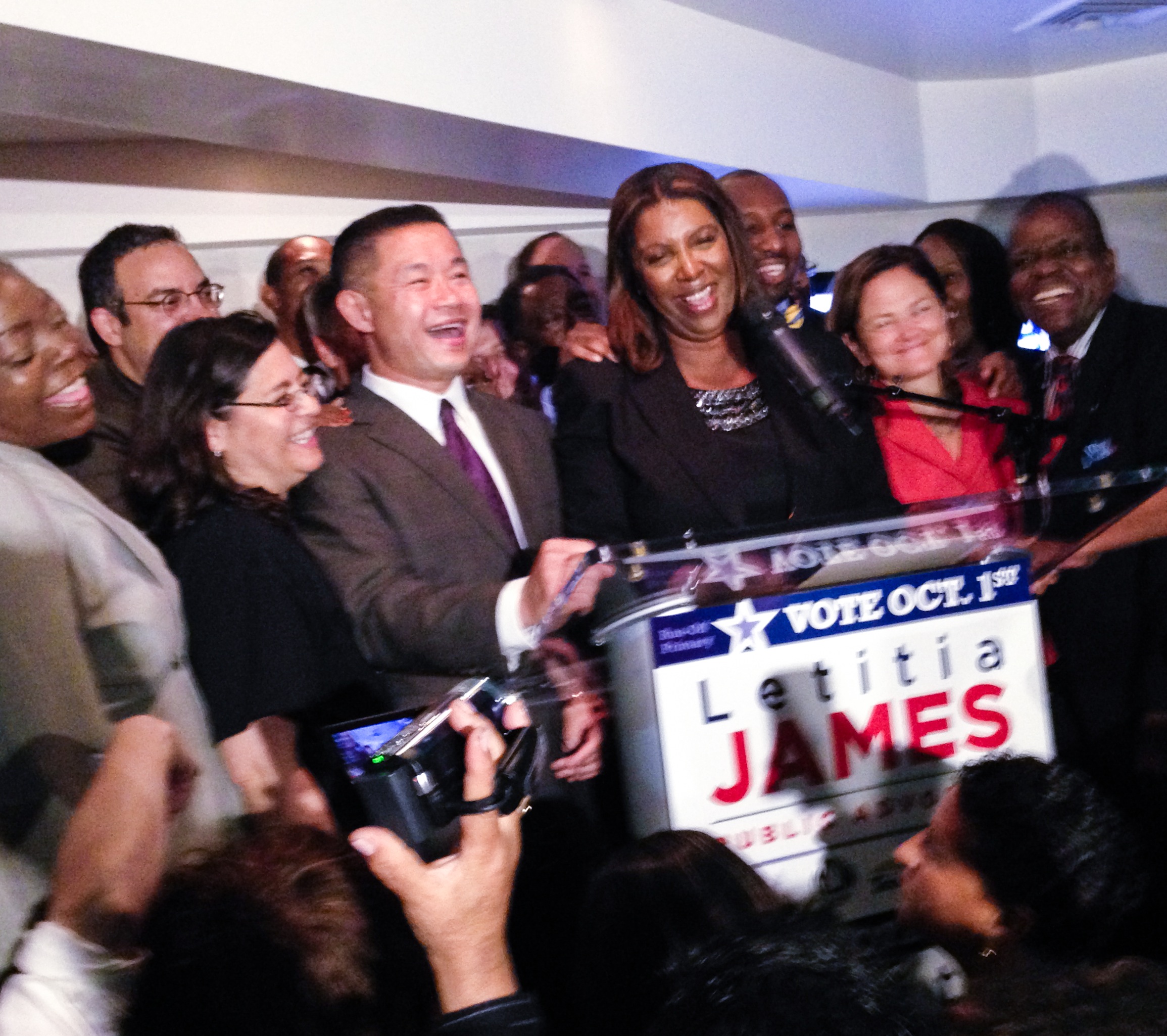Today's Lead: Principals Fear Changes

A group of 120 principals have issued a letter in support of the school network structure that is at the center of the Bloomberg administration's education reforms aimed at empowering principals as educators. Mayor-elect Bill de Blasio and others have questioned the need for the support networks, which provide for professional development, curriculum and budgeting. But principals said in their letter that the networks "provide particular kinds of support for schools that many of us have found to be invaluable." Critics say the networks haven't met expectations in many cases. New York University professor Pedro Noguera, speaking to GothamSchools, said of the quality of networks: “It’s a very mixed bag out there.”
The Bloomberg Fiscal Legacy: After 12 years in office, Mayor Michael Bloomberg will have left an indelible fiscal stamp on New York City that will present his successor — and any progressive agenda — with formidable challenges. A commentary by Glenn Pasanen. READ MORE.
Today's policy agenda: State Sen Liz Krueger joins Hunger Action Network at a news conference to highlight how cuts to food stamps have affected New Yorkers and calls for anti-hunger measures under next mayor, 11 a.m., All Souls' Church, 1157 Lexington Ave. The City Council's committee for sanitation and solid waste management considers a bill that would ban styrofoam to-go cups and containers, 1 p.m., Council Chambers, City Hall.
Other Stories We're Following
After Voter Approval, Developers Draft Casino Plans (NY Times)
Street Artists Face New Reality Without Graffiti Meccas (NY Times)
State Education 'Think Tank' Backed By Private Money (Albany Times Union)
Law Firms Try To Quash Moreland Subpoenas (Lower Hudson Journal)
Study: Mixed Martial Arts Would Bring NY $135M Annually (Lower Hudson Journal)
Ex-Gov Pataki To Call for Lowering Of Income Tax (Wall Street Journal)
De Blasio's Plan To Get Property Owners To Use Vacant Plots Of Land (Crain's)
World's Largest Foam Firm Battles Against Proposed City Ban (NY Post)
State Sen. Wants NYPD Services To Stores Tracked (Daily News)
City Council Tries For Runoff Reform In Final Stretch

NEW YORK — After a dismal turnout for this year’s costly runoff for public advocate, the City Council is spending its last five weeks in office exploring what, if anything, it can do to reform post-primary runoff elections.
The Council held a committee hearing on Thursday on two bills that would institute one form or another of instant runoff voting, where candidates would be ranked by voters — saving the city from having to run a separate election in close races.
A third bill also under consideration would eliminate runoffs altogether for the races for comptroller and public advocate.
The city’s charter requires a runoff for the three citywide seats: mayor, comptroller and public advocate, but the three bills sitting in committee would change how New Yorkers pick their candidates for the 2017 elections.
Fewer than 200,000 New Yorkers voted for the one-race runoff on Oct. 1 for the public advocate’s office. The contest was a blow-out success for City Councilwoman Letitia James of Brooklyn — at a cost of some $13 million to taxpayers.
At the hearing on Thursday, Public Advocate-elect James acknowledged once again that she won the seat with support of 3 percent of the city’s voting population. But she questioned whether instant runoff voting was the right solution.
“These are complicated issues,” James said of the intricacies of instant runoffs. “And at this point in time all I’m seeing and hearing is ‘litigation, litigation, litigation.”
IRV in NYC
Instant runoff voting — or IRV — would allow New Yorkers to rank candidates on a ballot that would then be scanned on the day of the primary. There are two bills under consideration by the Council dealing with IRV.
One narrower bill, sponsored by Manhattan Councilwoman Gale Brewer, would offer IRV only to military and absentee voters (Intro 1108). Thirty-six Council members have signed on to the bill. Brooklyn Councilman Brad Lander has offered a more aggressive second bill that adopts IRV for the three citywide races (Intro 1066). Lander’s bill has 23 co-sponsors.
Having additional ranking options would likely force the city’s Board of Elections to redesign the ballot with multiple pages. In its testimony, the board told Council members that each additional printed ballot page could cost $1.75 million.
The board also said that training the city’s 36,000 poll workers in new IRV procedures would cost an additional $2 to $4 million annually. Councilman Brad Lander furrowed his brow at the training cost, arguing that including training IRV ballots wouldn’t require that drastic a price tag.
“I think what we’re trying to provide the worst-case scenario numbers,” warned Michael Ryan, executive director of the city’s elections board, at the hearing on Thursday.
Crowded pages could mean not just an additional one or two pages on the ballot, James said, but potentially upwards of six or seven. That likely means pushing names off the front page, leaving some candidates unhappy about where they land on the ballot.
No More Runoffs?
A third bill (Intro 1192), introduced by James, would eliminate runoff elections for the races for comptroller and public advocate, although she did suggest including the mayoral race to include all citywide races.
Only brought to committee last week, it currently has three other sponsors.
Good government groups pushed back on the idea of getting rid of the runoff outright, which didn’t exist until a 1973 charter revision. At the hearing, Citizens Union Policy Director Alex Camarda defended the runoff as a means to ensure candidates are elected by more than just a plurality.
Common Cause New York’s Executive Director Susan Lerner agreed. “I do think strange things can happen without a runoff on some down-ballot races,” she said.
Moving Forward
The next Council could take any of the bills up again if none of the three succeed this term. They’ll then face a mayor who’s unconvinced about instant runoffs. Mayor-elect Bill de Blasio has previously announced his own skepticism to IRV.
Even if the current Council can manage to get any of the bills to the floor for a vote before January, the legislation would still face a ballot referendum next November. If New Yorkers vote to opt into IRV, those changes to city election law — including how ballots are designed — also need to be approved by the state’s Board of Elections. The earliest any voter will see this happen in an election is 2017.
Assemblyman Brian Kavanagh, who is also pushing for a runoff reform bill in Albany, testified to the committee that there’s interest in his bill by members of both the Democrat-controlled Assembly and more politically complicated Senate.
If the bill currently sitting in an Assembly committee succeeds, Kavanagh said, there wouldn’t be a need for a referendum or mayoral approval.
Today’s Lead: Bloomberg Promises Balanced Budget

Mayor Michael Bloomberg announced yesterday that he will leave his successor, Bill de Blasio, a balanced budget. The Bloomberg administration had projected a $2 billion deficit in June. The administration attributed the brighter financial news to better-than-expected tax revenue and savings. The budget does not include the $7 billion in retroactive pay that city unions want and that the mayor-elect will have to negotiate.
Don’t Expect Moreland Report on December 1st, Source Says: The Moreland Commission to Investigate Public Corruption will not be delivering its preliminary report on Dec. 1, as was announced when the commisison was first created by Gov. Andrew Cuomo, a source with close working knowledge of the panel told the Gotham Gazette on Thursday. By David Howard King. READ MORE.
Other Stories We're Following
9/11 Payouts Are Caught in Bottleneck (Wall Street Journal)
Scrutiny Over Bronx Councilman’s Demands for Ice Center Plan (NY Times)
Cuomo Prefers Radio to Spread Message (NY Times)
Bloomberg Bashes Corrections Union For Halting Rikers Island Buses(Daily News)
Senate and Assembly to Jointly File Against Moreland Commission (Daily News)
Schneiderman Celebrates JPMorgan Settlement (Albany Times Union)
Pro-Fracking Employment Numbers Are Greatly Exaggerated (Capital)
City Council Speaker Hopefuls Debate (NY 1)
City Unemployment Up Slightly (Crain's)
NY’s Top Court Upholds NYC Hotel Tax on Marketers (Crain's)




